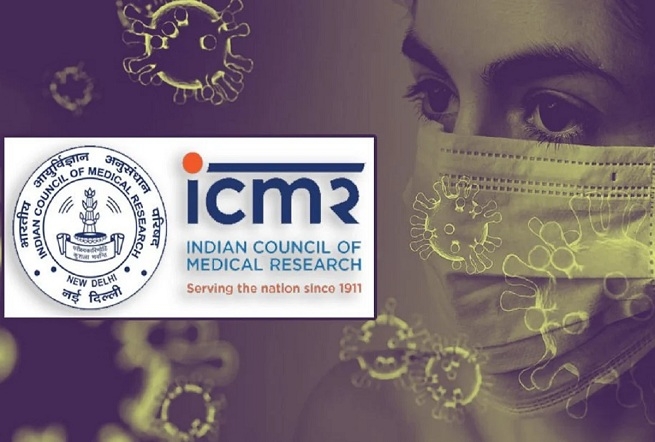ICMR issues guidelines for health care of persons with disabilities
| Date :11-Jun-2020 |

Staff Reporter :
Comprehensive guidelines were issued by Indian Council of Medical Research (ICMR) for health care of persons with disabilities (PWDs) against the backdrop of novel coronavirus and protocols to be followed. ICMR’s directives address concerns that health care machinery was not walking the extra mile while attending to PWDs, despite the fact that they needed extra care and precautions. The 71-pages directives have taken note of all the possibilities and came out with the guidelines after detailed study of current practices worldwide for health care facilities and special needs of PWDs.
Earlier in absence of any specific directions, activists working for welfare of PWDs were aghast at sorry state of affairs that handicapped persons faced, especially in COVID-19 facilities. An important aspect about ICMR guidelines is its Nagpur connect as city based NGO, Mission Institute for Training Research and Action (MITRA) took-up the issue about shortcomings in health care facilities for PWDs who have teased positive for COVID-19. Several other groups in the country also apprised the central agency following which a team of experts was constituted who after detailed study came out with the point by point guidelines covering various aspects, relating to PWDs, the care givers and other issues. Said Abhijeet Raut, President, MITRA, one has to be very patient while dealing with PWDs, especially persons who are mentally challenged, and in light of novel coronavirus with para medics and Doctors under severe stress one could hardly find empathy in their dealing with such patients.
These patients need to be in familiar surrounding or in care of person within the family and since there were restriction on presence of non COVID-19 facilities that complicated matters. Now that ICMR has allowed presence of even non COVID-19 patient with PWDs in COVID-19 wards, the issue stands resolved to a large extent. It specially recommends presence of mother or any other caretaker with PWDs, especially those having intellectual, learning of multiple disabilities. Some of the salient point of the recommendations made by ICMR has laid emphasis on presence of people engaged in rehabilitation of PWDs along with Doctors and Nurses. At hospitals and dedicated treatment centre all the facilities like ramp, lift and reserved seats be kept and it is to be ensured that even items like crutches, wheelchair and other equipments of PWDs should also be sanitized and be made part of protocol.
The guidelines lay emphasis on easy accessibility of all the facilities including machines for PWDs. For persons with hearing or speech impaired, trained personnel knowing sign language should be present and they be given all facilities at far with other general personnel. Transparent masks be utilised while dealing with such persons as traditional mask may lead to miscommunication. Similarly, one important instruction for health care personnel is to avoid communication and stress be given on written messages. For blind and low sight persons the instructions be issued loudly and clearly and Braille literature be utilised to convey the messages and preferably in local languages. The machines that would be used should be continuously sanitized. Further ICMR suggested usage of various colours, charts, pictures, cartoons to reach out to PWDs at large while they are under treatment for COVID-19. District Social Welfare Officer services should be utilised to hilt. Crutches, wheelchairs, hearing aids and other such items must be kept for usage for PWDs while in isolation of quarantine facilities.